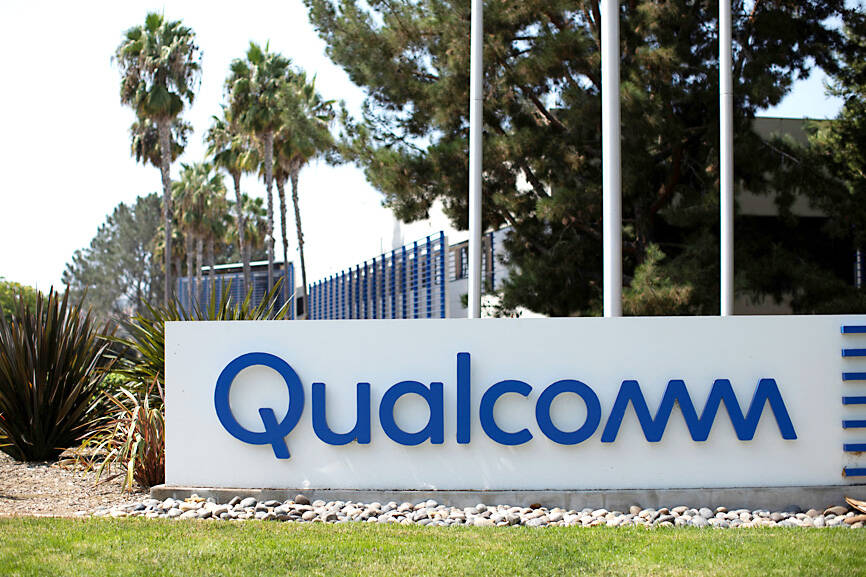According to related reports, Qualcomm has temporarily slowed down its acquisition plan for Intel, although the company has previously proposed a preliminary plan to acquire Intel.
Acquisition challenges: Complex financial, operational and regulatory factors
People familiar with the matter said that the plan to acquire Intel did not go smoothly, mainly due to various challenges. First of all, Intel's financial situation is an obstacle that cannot be ignored. Intel is currently in debt of more than $50 billion, while its semiconductor manufacturing business is still in the red. This part of the business is particularly difficult for Qualcomm, which is mainly focused on mobile communication technology and does not have a deep accumulation in semiconductor manufacturing. Therefore, how to integrate Intel's manufacturing business will be a huge risk point in the acquisition process.
In addition, the acquisition of Intel faces a number of regulatory hurdles, especially antitrust scrutiny. Because Intel and Qualcomm intersect in multiple markets, deals may need to go through a lengthy review process, especially in the Chinese market, where antitrust reviews can be particularly complex. This factor added uncertainty to the transaction and led Qualcomm to reassess the viability of the acquisition.
Nonetheless, the person pointed out that although the acquisition plan has been put on hold for the time being, Qualcomm may still consider acquiring part of Intel's business or re-evaluate the overall possibility of acquiring Intel in the future. This also means that Intel could still be part of Qualcomm's long-term strategy, even though the current acquisition talks are over.
Qualcomm's strategy: Focus on emerging markets and self-growth
Unlike the temporary slowdown in the planned acquisition of Intel, Qualcomm's strategic direction has not fundamentally changed. Qualcomm has been looking to boost growth in recent years by expanding into new market segments, particularly in the automotive, IoT and PC chip sectors. Based on the latest financial guidance, Qualcomm expects to achieve new annual revenue growth of $22 billion by fiscal 2029. To achieve this, Qualcomm is actively pushing into new technology areas and expanding its share in these markets.

Pictured: Qualcomm slows down plans to acquire Intel (Source: Reuters)
In a recent interview with Bloomberg, Qualcomm CEO Cristiano Amon said that despite the talk of acquisitions in the market, the company has not yet clearly identified the need to drive strategy through large-scale acquisitions. He noted that Qualcomm will continue to focus on achieving its goals through organic growth and technological innovation, particularly in the automotive chip and IoT sectors, which are expected to be important growth engines in the coming years.
In addition, Amon also stressed that while M&A may be considered in the future, the company's current core strategy is still to improve competitiveness through self-innovation, rather than relying on external acquisitions. This suggests that Qualcomm's approach to market share is more through technological innovation and market expansion than large-scale acquisitions.
Intel's Transformation Efforts: Government Support and Internal Reforms
Compared to Qualcomm's strategic adjustment, Intel is undergoing a major self-transformation. In the past few years, Intel's performance in the market has been challenged by many challenges, especially in the competition with competitors such as Nvidia, Intel's technology in the field of AI and high-performance computing has lagged behind, making it gradually lose its advantage in the market. Intel's share price has fallen by about 51% this year, with its market capitalization falling to around $107 billion, putting a lot of pressure on investors.
Faced with the dilemma, Intel has taken a series of strategic measures to turn the situation around. Intel's CEO Pat Gelsinger said the company will continue to adhere to the strategy of "staying independent" and push the company out of the woods through reforms. Gelsinger stressed that Intel has enough internal energy and passion to execute this strategy, despite the fierce competition and market pressures.
To further restore competitiveness, Intel has enlisted support from the U.S. government. A few days ago, the U.S. government announced that it would provide nearly $7.9 billion in subsidies to Intel, which will be used for Intel's semiconductor manufacturing projects in multiple states in the United States. Under the agreement, Intel will receive the funding in installments after reaching milestones for the relevant projects. In Arizona, Oregon, and New Mexico in particular, Intel will use the funds to expand its manufacturing and R&D facilities.
The government subsidy will not only help Intel improve its financial position, but also enhance its manufacturing capacity in the domestic market. The subsidy is expected to provide Intel with the necessary resources to strengthen its competitiveness in the global semiconductor market.
Looking ahead: Competition in the semiconductor industry is intensifying
Although Qualcomm's acquisition plans have been put on hold for the time being, the future development of Intel and Qualcomm will still have a significant impact on the global semiconductor industry. Intel is working to regain market competitiveness through transformation and government support, while Qualcomm is seeking growth opportunities by expanding into new markets.
With the advancement of AI, 5G, autonomous driving, and other technologies, competition in the global semiconductor market is expected to intensify further. The rise of technology leaders such as Nvidia has brought challenges to traditional giants such as Intel and Qualcomm. For Qualcomm, although the acquisition plan has been put on hold, its presence in mobile communications, automotive and IoT chips will allow it to continue its strong growth momentum in the coming years.






